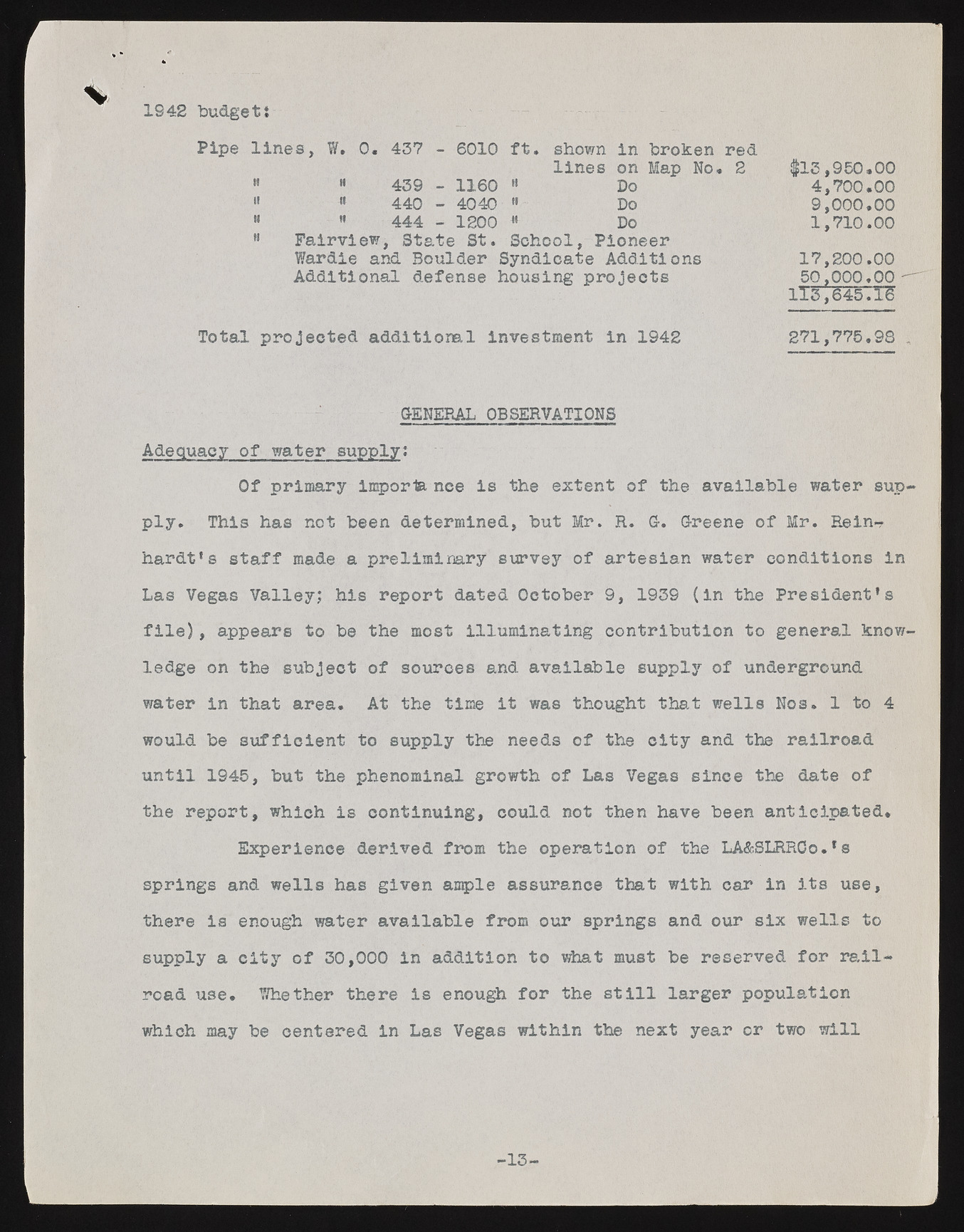Copyright & Fair-use Agreement
UNLV Special Collections provides copies of materials to facilitate private study, scholarship, or research. Material not in the public domain may be used according to fair use of copyrighted materials as defined by copyright law. Please cite us.
Please note that UNLV may not own the copyright to these materials and cannot provide permission to publish or distribute materials when UNLV is not the copyright holder. The user is solely responsible for determining the copyright status of materials and obtaining permission to use material from the copyright holder and for determining whether any permissions relating to any other rights are necessary for the intended use, and for obtaining all required permissions beyond that allowed by fair use.
Read more about our reproduction and use policy.
I agree.Information
Digital ID
Permalink
Details
Member of
More Info
Rights
Digital Provenance
Publisher
Transcription
1942 budgett lines, W. 0. 437 - 6010 ft. shown in broken red lines on Map No. 2 $13,950.00 h n 439 - 1160 i i it Do 4,700.00 it w 440 - 4040 ti Do 9,000.00 444 - 1200 i t Do 1,710.00 ii Fairvi ew , State St. School, Pioneer Wardie and Boulder Syndicate Additions Additional defense housing projects 17,200.00 50,000.00 113,645.16 Total projected additional investment in 1942 271,775.98 , GENERAL OBSERVATIONS Adequacy of water supply: Of primary importe nee is the extent of the available water supply. This has not been determined, but Mr. R. G. Greene of Mr. Rein-? hardt's staff made a preliminary survey of artesian water conditions in Las Vegas Valley; his report dated October 9, 1939 (in the President's file), appears to be the most illuminating contribution to general knowledge on the subject of sources and available supply of underground water in that area. At the time it was thought that wells Nos. 1 to 4 would be sufficient to supply the needs of the city and the railroad until 1945, but the phenominal growth of Las Vegas since the date of the report, which is continuing, could not then have been anticipated. Experience derived from the operation of the LA&SLRRGo.fs springs and wells has given ample assurance that with car in its use, there is enough water available from our springs and our six wells to supply a city of 30,000 in addition to what must be reserved for railroad use. Whether there is enough for the still larger population which may be centered in Las Vegas within the next year or two will

